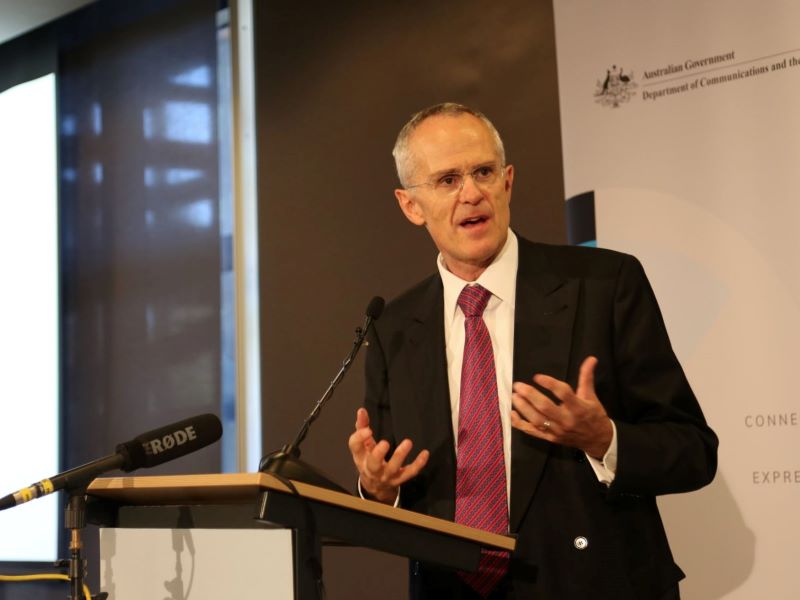In his last speech as head of Australia’s competition watchdog, Rod Sims has implored economists to stop viewing consumer law as “the poor cousin of competition law” and called on regulators to continue to make policy suggestions beyond just enforcing the law.
His speech entitled ‘Continuing the Australian Consumer Law (ACL) journey’ was delivered on Tuesday as the Australian Competition and Consumer Commission’s (ACCC) annual Ruby Hutchinson Memorial Lecture. The occasion also marked World Consumer Rights Day.

Mr Sims made two sets of suggestions to the ACCC: first, to look into ‘up front rules’ to regulate digital platform markets, and secondly to investigate whether laws applied overseas can be implemented in Australia.
Work on the former began with the launch of a discussion paper at the end of last month. Regarding the latter recommendation, Mr Sims pointed to consumer protections in the European Union (EU), the United Kingdom, Germany, South Korea, and Japan as examples. In particular, he cited the EU’s Platform-to-Business Regulation, which is similar to the resolution standards and external ombudsman scheme the ACCC has been calling for since 2019.
After almost 11 years as chair of the Australian Competition and Consumer Commission, Rod Sims departs formally departs the role Sunday. He assured listeners that “this is not the last you will see of me” in public policy advocacy.
Although he acknowledged that consumer law in Australia is ahead of the protections in other countries, such as the USA and the UK, which do not have penalties for breaches of consumer law, Mr Sims said we should remain “aghast at how low the international bar is set in relation to penalties.” Further, he said regulators had a role to play in making policy suggestions in a respectful way, without putting “the government of the day in a difficult position.”
Mr Sims also expressed surprise that economists often overlooked income distribution as a “key economic issue” and said it was important to continually question the balance of interests between the economy and consumers. Further, he added that small businesses often feel in a similar way to consumers when dealing with much larger businesses.
He then recalled the changes introduced by Australian consumer law in 2011 and emphasised the significance of heavy penalties to serve as a deterrence.
“Some believe that if you have sufficient competition consumers will automatically be well looked after. This is not so. The profit motive gives an incentive to gain an advantage by misleading consumers or selling them unsafe goods. Effective competition and consumer law are both necessary,” Mr Sims said.
“When I arrived at the ACCC in 2011, a $1 million penalty against a large company was celebrated. I then remember the positive reaction to Optus having to pay a penalty of $3.6 million for a breach of the Australian consumer law in 2013.
“Then in 2018 it seemed a milestone that Ford, Apple and Telstra faced $9 million to 10 million penalties. In 2021, we saw Telstra pay a $50 million penalty, VW pay $125 million and AIPE, a vocational training company, hit with a $153 million penalty. What a change. And these are all under the old penalty regime.”
Although Mr Sims is proud of the consumer law changes that occurred under his leadership of the ACCC he also noted that there remain a number of “glaring deficiencies.” Mr Sims took aim at Australia’s Unfair Contract Terms (UCT) laws which do not penalise the sale of faulty or unsafe goods.
“Can you imagine a situation where someone was caught stealing and the result of the police inquiries was that they simply had to give the money back? No penalty for the actual stealing to deter others. But we have this in our product safety laws. There is no law against selling unsafe goods; you are not breaching any act by doing so. You simply must recall the goods when they are seen to be unsafe.”
He also pointed out that it is not illegal for prices paid by a customer to be unilaterally hiked without informing them. Nor is it illegal to use personalised data to “target selling to vulnerable customers at inflated prices or to design interfaces to make choices that are not in their best interests.”
“I recognise that the ACCC can sometimes act when consumers were misled by omission, or that the conduct was unconscionable, but we here know that such options are difficult. Furthermore, business models and strategies are rapidly changing with new technologies and massive data harvesting, and these present new opportunities for manipulative and unfair practices by businesses.
“Many of these go unregulated because they were not envisioned when the ACL was created. A prohibition on unfair practices is a critical safety net to ensure consumers are not harmed. Big business largely opposes a law against unfair practices, just as they opposed a law against misleading conduct.
Before concluding the speech, Mr Sims told big businesses that it was their interest for customers to “have faith” in a market economy that works for them, and secondly that an unfair practices provision that covered the whole economy was better than a number of specific laws.
“Australia will have an unfair practices provision. Hopefully it will be sooner than later,” Mr Sims said.
“The platforms must take more responsibility for what they have created; which is a data driven model which makes huge amounts of money by directing messages to you, the product they are selling.”
Do you know more? Contact James Riley via Email.

